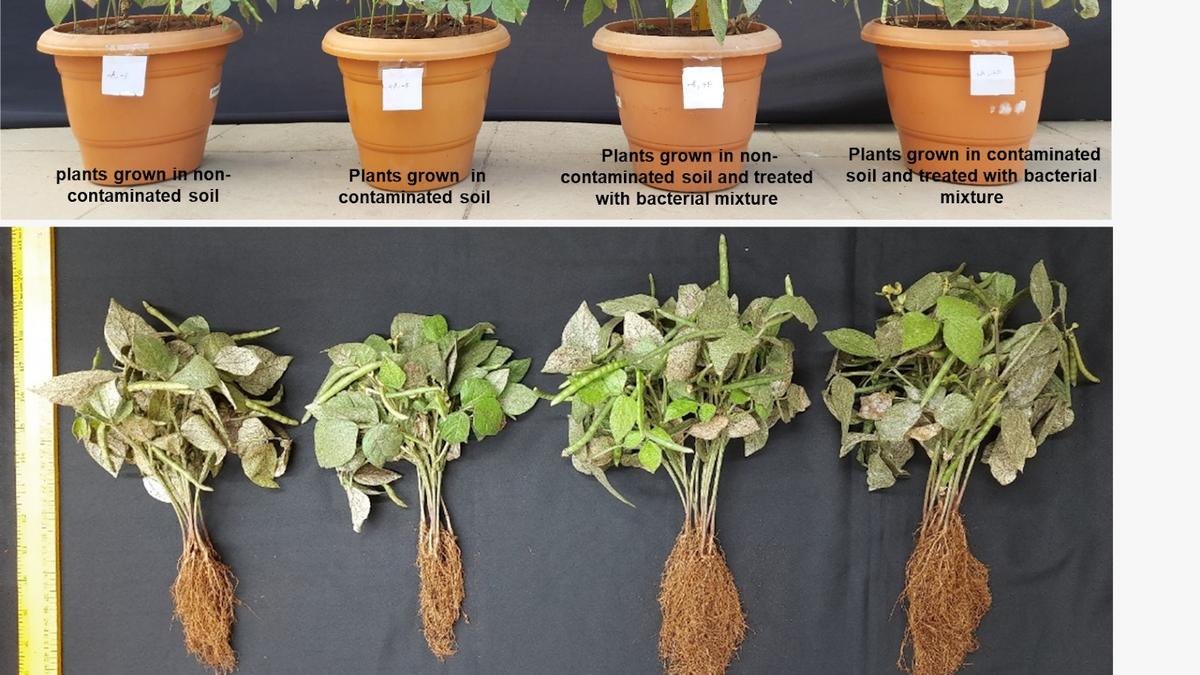
Researchers find bacteria that can clean up pesticides from soil to enhance crop yield
The Hindu
IIT Bombay researchers use bacteria to clean soil, boost crop growth, and fight fungal diseases naturally.
Soil contamination is one of the major issues in the agriculture industry. These compounds are toxic, can inhibit seed germination, reduce plant growth, yield and also accumulate in seeds and plant biomass.
Traditional approaches to remove these pollutants, like chemical treatments or soil removal, often turn out to be band-aid solutions – expensive and unable to tackle the problem completely.
To address this issue, a team of researchers from the Indian Institute of Technology Bombay (IIT Bombay) have identified bacteria from toxic environments. While doing so, they noticed that certain bacterial species, specifically from the genera Pseudomonas and Acinetobacter, were especially good at breaking down aromatic compounds. In a recent study published in the journal Environmental Technology and Innovation, researchers have used the power of specific bacterial species to remove organic pollutants from soil.
Professor Prashant Phale, from the Department of Biosciences and Bioengineering at IIT Bombay, under whose guidance Sandesh Papade carried out the research for his PhD. explained that these bacteria were isolated from contaminated soil and agricultural fields.
“They feed on pollutants, breaking them down into simpler, harmless, non-toxic compounds. In this way, they act as natural cleaners of polluted environments. Like feeding two birds with one scone, while breaking down aromatic pollutants, these bacteria were also found to convert insoluble forms of essential nutrients, such as phosphorus and potassium, into soluble forms and make them readily available to the plants. They also produce substances called siderophores, which help plants absorb iron in nutrient-limited environments.”
Moreover, these bacteria also contribute to plant growth and health by producing a high amount of growth hormone called indoleacetic acid (IAA). “So, while these bacteria are cleaning the soil, they are also helping plants grow healthier and more robust by fertilising the soil and improving soil health,” Mr. Phale added.
Interestingly, when a mixture of bacteria from the Pseudomonas and Acinetobacter genera is used, they significantly boost the growth and yield of crops (wheat, mung bean, spinach, fenugreek, etc.) up to 45-50%, the research said.

The front end sees the most noticeable changes. The bonnet is now more sculpted and squared-off, giving the car a slightly more assertive stance. A redesigned grille with unique slot patterns is flanked by sleek new LED headlamps, which help give the vehicle a more premium, upmarket look. While the side profile remains largely the same, the 15-inch alloy wheels now feature a fresh design. At the rear, the updated LED tail lamps and revised tailgate lend a cleaner, more contemporary appearance.





















 Run 3 Space | Play Space Running Game
Run 3 Space | Play Space Running Game Traffic Jam 3D | Online Racing Game
Traffic Jam 3D | Online Racing Game Duck Hunt | Play Old Classic Game
Duck Hunt | Play Old Classic Game










